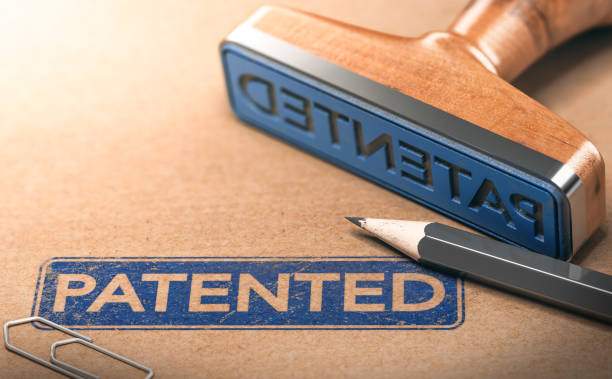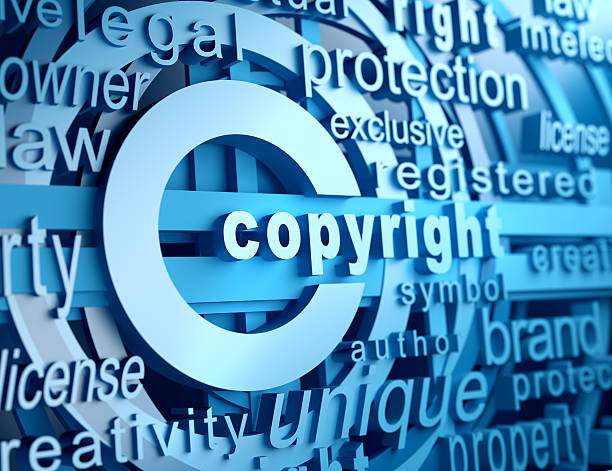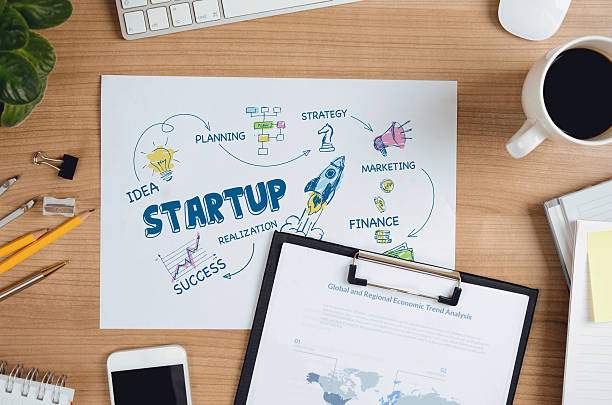START UP and MSME

PATENT: A CRUCIAL RESOURCE FOR STARTUPS
Anjali Siri
Lexgin IP
As you are aware, intellectual property is a type of legal right that can be obtained for intellectual efforts in the fields of business, literature, science, and the arts. All across the world, intellectual property (IP) is viewed as a tool for fostering innovation and creativity. We seek to protect and sell the ideas’ intangible elements, while inventors strive to turn their ideas into a physical product. In general, IPR attempts to protect the creators by giving them control over the use of their innovations for a specific period of time and the rights of the public to use such creations. IPR protection is crucial for any business since it enables them to secure their innovative creations, and the government provides funding to get such protection.
MSMEs should see IPRs as an investment in legal monopolies in order to become formidable competitors. IPR is a marketing tool that will support them by stopping their competitors from breaching their IPR by copying or selling any of their products. By licensing, selling, or commercializing the IP-based goods or services, the MSME may be able to make money from its IP.
MSMEs and start-ups have a wide range of IP rights, a few of which are listed below.
Patent: Secure your Start-UP Idea

An invention obtains a patent. If the patent office approves the application, the patentee will have complete ownership of the invention as specified in the patent specification. A product or process that offers a novel approach to accomplishing something or a novel technological solution must be the subject of the patent. A patent offers an inventor legal protection for their creation. In exchange for the public disclosure of an invention, protection is typically given for a short time.
Benefits of Patent Filling:
- For twenty years following the application date, patents grant the author or inventor sole ownership of the invention.
- By retaining these exclusive rights, the inventor prevents others from exploiting the patented innovation for commercial purposes, which lessens competition and grants the inventor a temporary monopoly in the market.
- The inventor of the business will be able to receive large returns on investment by commercializing the inventions.
- The patented idea may be sold or license to another business so that it can be used commercially. This will provide the business’s developer with a source of income.
- It will strengthen your company’s negotiating position if you purchase another company’s patents through a license agreement.
- Your company will have more negotiating power if it purchases patents from another company under a license agreement. That indicates that your patents may end up being of great interest to another business, and you two could engage in a cross-licensing agreement simply by trading patents.
MEASURES TO TAKE BEFORE FILING A PATENT
Because a patent is essential for company, applying for one is a difficult procedure for many reasons, with confidentiality being one of the key ones. Therefore, before choosing to apply for a patent, you must exercise extreme caution regarding the invention’s confidentially The following are some actions you must take:
Before a patent application is made, the creator should not reveal an idea or invention to anyone. If it has been revealed, the author should require the subject to sign an NDA (Non-Disclosure Agreement).
- Before submitting a patent application, the inventor should conduct a search to see if a patent has already been submitted for or awarded for a comparable idea.
- The employment agreements of all organisations or institutions that produce patented innovations ought to include an assignment clause and a secrecy clause.
At various stages, LEXGIN IP can help you develop an IP portfolio and generate commercial rewards from your ideas.
1.Discussion
We invite innovators to talk with us about their IP-related concerns. As a part of our charitable endeavours, we hold these dialogues. We will be happy to help you if you call, meet, or email us with your needs.
2.Validation
You are inventing a new object, enhancing an already existing one, or doing something completely different. Through a landscape study, our team is always able to assess an idea’s patentability or risk for intellectual property infringement, as well as to pinpoint potential research fields.
3. IP Protection Type
What must I safeguard, and how must it be safeguarded? The question can seem straightforward, but the answer depends on the type of organization as well as its goals. This calls for a sound plan, and we are here to help you use IP to grow your company.
4.Application for Patent
Which patent application type is better for me, a non-provisional patent application or a provisional patent application? How should I write these applications? Our staff develops the patent application after first assessing the research’s state.
5. Documentation and Enforcement
Through our network of international affiliates, we serve as your lone point of contact for the filing and prosecution of your patent application in the, India, South Korea, Germany, Ireland, South Korea, Japan, and other countries. Like us, our international business partners recognise the value of an inventor’s limited financial resources and provide the best services at a very reasonable cost.
5.Incorporated into commerce
With our cutting-edge models, you may profit financially from your intellectual property.
COPYRIGHT:

The laws that govern the rights of creators of original ideas fall under the category of copyright law. By searching, filing, registering, and granting license, copyright assists clients in protecting their intellectual property.
There are many ways for artists and content owners to make money in the modern digital age, and with the growing importance of open-source licensing, it is crucial to see copyright protection and enforcement. With the help of the appropriate authorities, we help you preserve your rights by registering your copyrights. We create a statement of work with the customer that provides you with stronger copyright protection.
Many MSMEs undervalue this privilege because they focus primarily on providing goods and services. However, if we take a broader view, it is truly a valuable IP asset for them. This right allows for the protection of a wide range of original books used in any MSME.
Documents Required:
- work to be copyrighted in either PDF or Word format.
- signature of the creator in jpg format.
- applicant’s or creator’s residential address in Word format.
DESIGNS
A design right protects the aesthetics of a tangible product, such as its shape, texture, colour, materials, ornamentation, and ornamental elements. For newly created designs applied to things built using an industrial process, design registration is a type of intellectual property protection that provides protection against imitation. The design may be used by the owner for a period of ten years from this registration, with a potential extension of an additional five years.
REIMBURSEMENT in IPR FEE FOR START-UPS

The many programme to recoup the cost of patent filing, the total cost of innovation, etc.
The NMCP scheme aims to increase understanding of intellectual property rights (IPR) for micro, small, and medium-sized firms.
This programme attempts to identify an MSME industry’s IPR needs and provide guidance on bolstering the IP portfolio. A patent, geographic indications, and a trademark were all funded.
Visit the following website: http://dcmsme.gov.in/schemes/IPRDetail.html.
Requirements
The following criteria must be met in order to be eligible for patent, geographic indication, and trademark reimbursement:
- Udyog Aadhar/UAM and registered at MSME-Data bank: The applicant, entity, or unit must have a valid Udyog Aadhar/UAM and be registered at MSME-Data bank in order to be eligible for Office of Development Commissioner (MSME) reimbursement of real fees or expenses incurred towards registration of patents or trademarks. Subject to possessing a valid Udyog Aadhar or UAM, individuals who filed or registered patents or trademarks in their names are also qualified for reimbursement.
- Relevant incorporation/establishment papers, entity PAN number: For reimbursement of actual charges or expenses incurred towards registration of GI, the agency, institutions, associations, institutes, non-profit bodies, NGOs, societies, trusts, or similar other non-commercial entities—other entities that might not have Udyog Aadhar—shall give relevant incorporation or establishment documents and the PAN number of the entity.
Applying Procedure:
Applicants can apply for reimbursements through the online portal of Patent: Secure your Start-UP idea
Alternatively, you can contact your nearest MSME-DI to apply.
- All applications submitted through the online portal will be sent to the appropriate Implementing Agency for review, approval, and the release of funds to cover the costs incurred in obtaining a patent, trademark, or geographical indication. •
- The applicant shall be required to provide all pertinent information and upload the necessary supporting documents online.
- If a dispute arises, such cases may be referred to the Development Commissioner’s Office for any necessary relaxation based on the merits of the case.
This scheme requires important documents for reimbursement, such as:
Udyog Aadhar/UAM and registered as the MSME Data Bank.
Scheme for Facilitating Startups with Intellectual Property Protection (SIPP)
SIPP aims at promoting and protecting the IPR of startups. It mentors innovative technologies among the startups and supports them to safeguard these technologies.
Who can apply?
- Startups are acknowledged under GSR 180(E), which was published in Part II, Section 3, Subsection I of the Gazette of India on February 17, 2016, as amended from time to time.
- Startup is acknowledged by the DIPP, and the certificate can be checked.
Criteria to be followed:
Eligibility criteria for patent Reimbursement are as follows
- Any startup recognized in accordance with the notification GSR 180(E) published in Part II, Section 3, Sub Section I, of the Gazette of India dated February 17, 2016, as modified from time to time,
- The Startup India website (https://www.startupindia.gov.in/content/sih/en/startup-scheme.html) allows users to verify the DIPP’s Certificate of Recognition.
- The Inter-Ministerial Board of Certification will not require the startups covered by this programme to get a certificate identifying them as eligible enterprises.
- Start-ups must voluntarily state that they have not used funding from any government programme to pay the facilitator, patent agent, or trademark agency for submitting or pursuing an IP application.
The maximum grant per application or proposal
Government to cover expenses of facilitation:
Under this plan, the Central Government will cover all facilitator fees for any number of patents, trademarks, or designs that a startup may submit, with startups only responsible for the statutory fees that must be paid.
Reduction on the filing of an application:
Startups will receive an 80% discount on the filing fee for patents compared to other businesses. They will be able to reduce expenses in these important formative years thanks to this.
How to use:
The start-ups must get in touch with a facilitator to obtain the most recent information on the paperwork required for a patent or trademark application, depending on the sector and jurisdiction of the facilitators.
A facilitator can be anyone.
1. Any registered patent agent with the CGPDTM
2. Any trademark representative who has registered with the CGPDTM
3. Any advocate, as defined by the Advocates Act of 1961, who actively participates in the submission and decision of trademark application.
4. a government department, organization, or agency, or CPSU (like TIFAC, NRDC, BIRAC, Meity, CSIR, etc.), through an authorized representative.
However, it is to be clarified that the IP application has to be signed by a person authorized to do so under the provisions of the relevant Act and Rules.
















